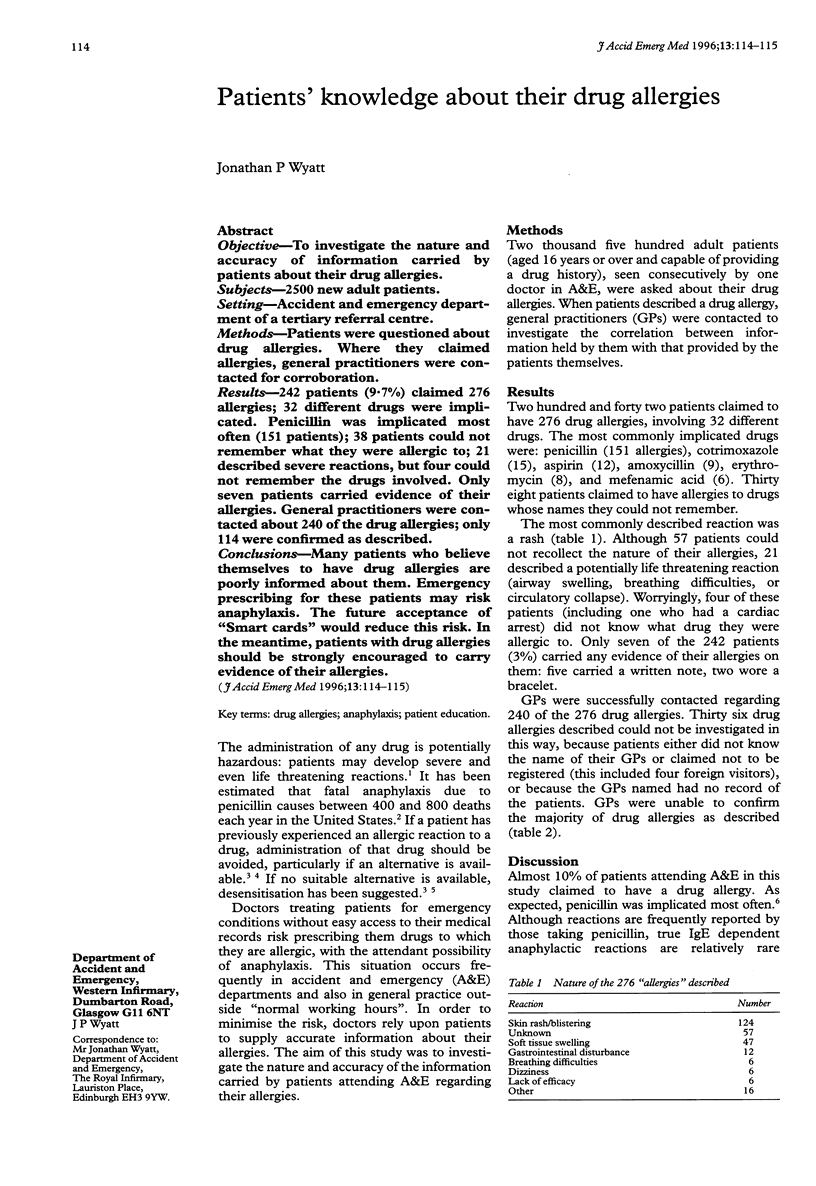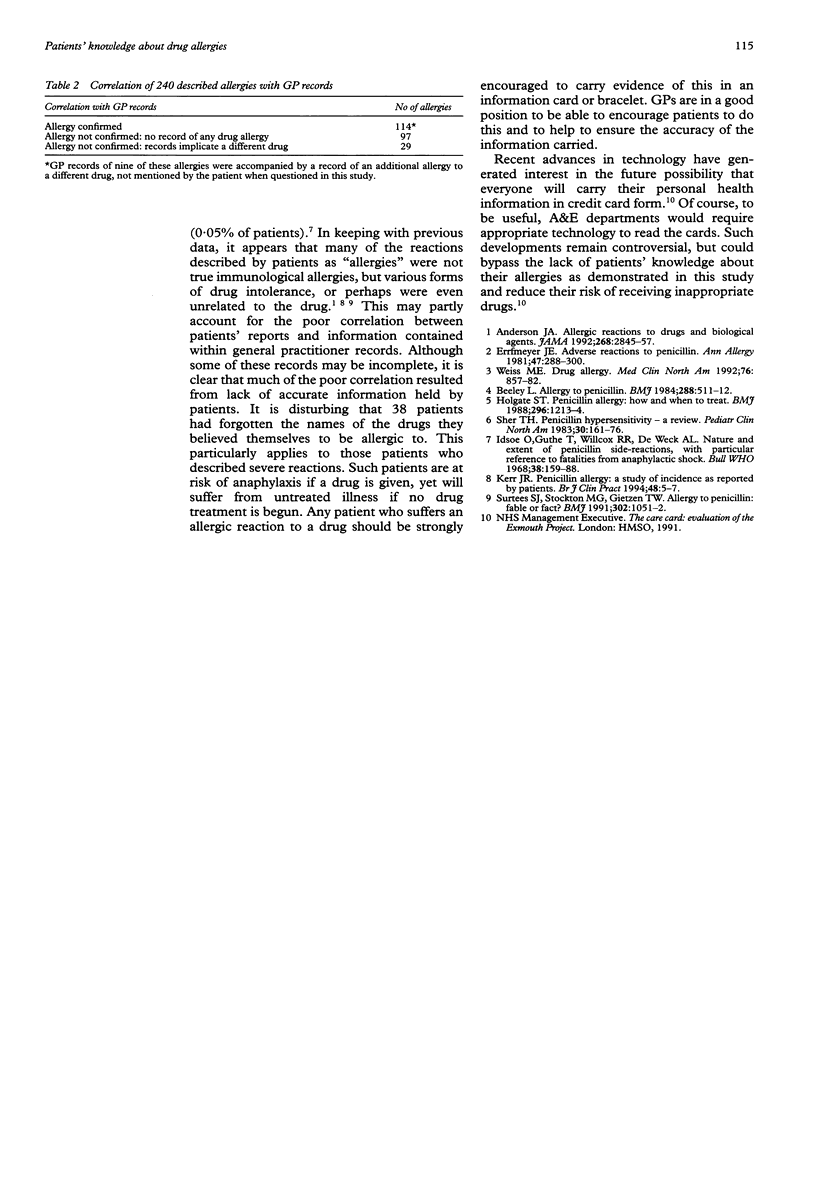Abstract
OBJECTIVE--To investigate the nature and accuracy of information carried by patients about their drug allergies. SUBJECTS: 2500 new adult patients. SETTING--Accident and emergency department of a tertiary referral centre. METHODS: Patients were questioned about drug allergies. Where they claimed allergies, general practitioners were contacted for corroboration. RESULTS--242 patients (9.7%) claimed 276 allergies; 32 different drugs were implicated. Penicillin was implicated most often (151 patients); 38 patients could not remember what they were allergic to; 21 described severe reactions, but four could not remember the drugs involved. Only seven patients carried evidence of their allergies. General practitioners were contacted about 240 of the drug allergies; only 114 were confirmed as described. CONCLUSIONS--Many patients who believe themselves to have drug allergies are poorly informed about them. Emergency prescribing for these patients may risk anaphylaxis. The future acceptance of "Smart cards"would reduce this risk. In the meantime, patients with drug allergies should be strongly encouraged to carry evidence of their allergies.
Full text
PDF

Selected References
These references are in PubMed. This may not be the complete list of references from this article.
- Beeley L. Allergy to penicillin. Br Med J (Clin Res Ed) 1984 Feb 18;288(6416):511–512. doi: 10.1136/bmj.288.6416.511-a. [DOI] [PMC free article] [PubMed] [Google Scholar]
- Erffmeyer J. E. Adverse reactions to penicillin. Part I. Ann Allergy. 1981 Oct;47(4):288–293. [PubMed] [Google Scholar]
- Holgate S. T. Penicillin allergy: how to diagnose and when to treat. Br Med J (Clin Res Ed) 1988 Apr 30;296(6631):1213–1214. doi: 10.1136/bmj.296.6631.1213. [DOI] [PMC free article] [PubMed] [Google Scholar]
- Idsoe O., Guthe T., Willcox R. R., de Weck A. L. Nature and extent of penicillin side-reactions, with particular reference to fatalities from anaphylactic shock. Bull World Health Organ. 1968;38(2):159–188. [PMC free article] [PubMed] [Google Scholar]
- Kerr J. R. Penicillin allergy: a study of incidence as reported by patients. Br J Clin Pract. 1994 Jan-Feb;48(1):5–7. [PubMed] [Google Scholar]
- Sher T. H. Penicillin hypersensitivity--a review. Pediatr Clin North Am. 1983 Feb;30(1):161–176. doi: 10.1016/s0031-3955(16)34327-9. [DOI] [PubMed] [Google Scholar]
- Surtees S. J., Stockton M. G., Gietzen T. W. Allergy to penicillin: fable or fact? BMJ. 1991 May 4;302(6784):1051–1052. doi: 10.1136/bmj.302.6784.1051. [DOI] [PMC free article] [PubMed] [Google Scholar]
- Weiss M. E. Drug allergy. Med Clin North Am. 1992 Jul;76(4):857–882. doi: 10.1016/s0025-7125(16)30329-7. [DOI] [PubMed] [Google Scholar]


